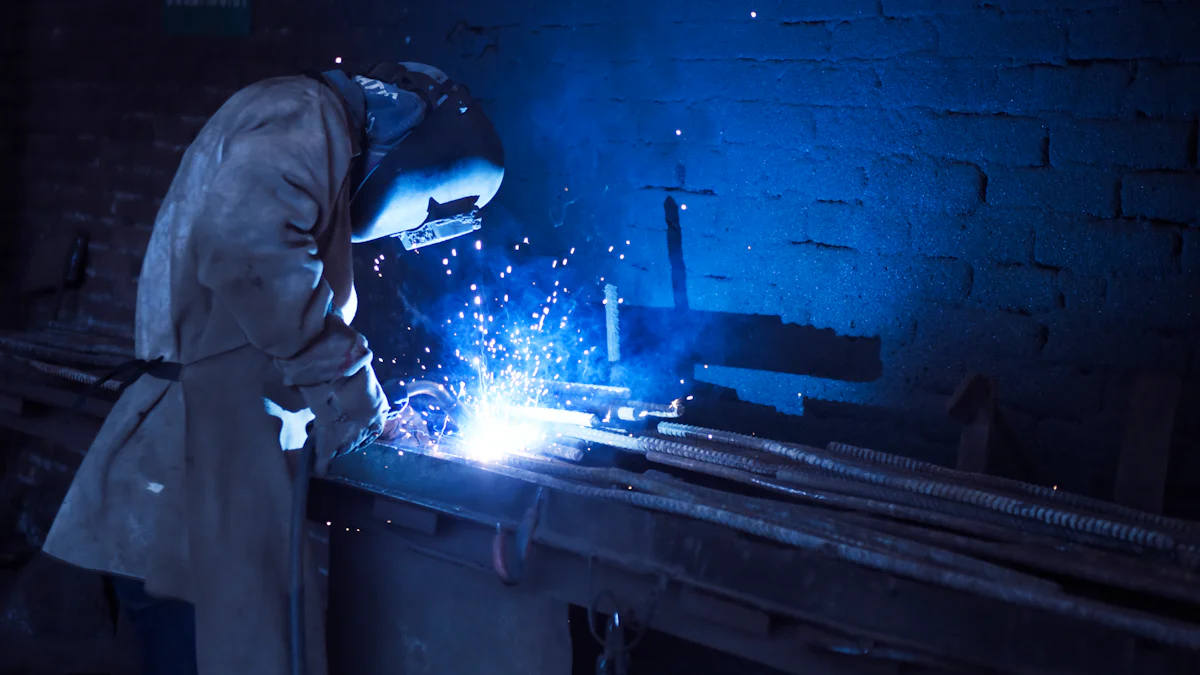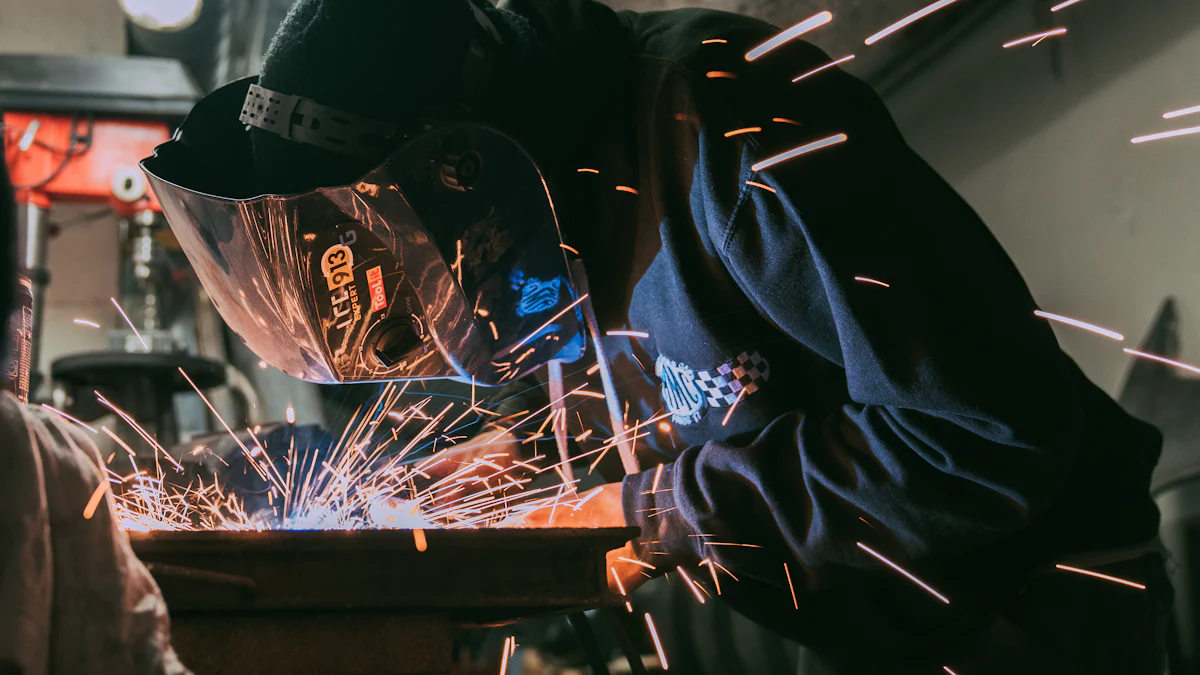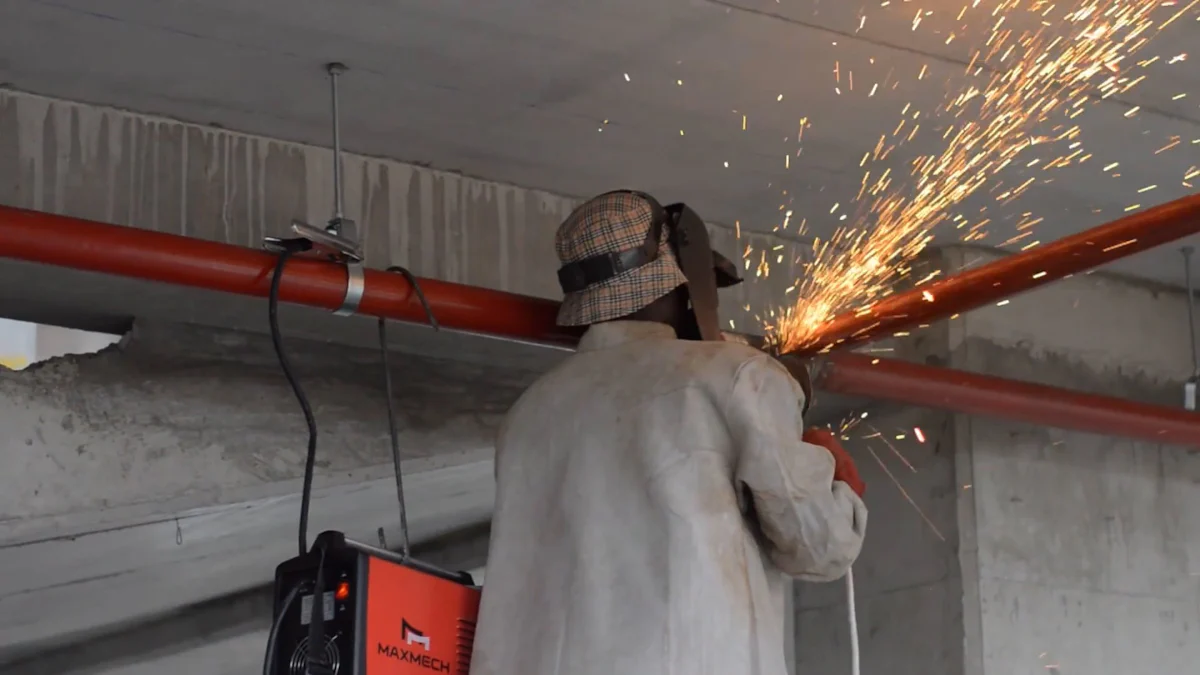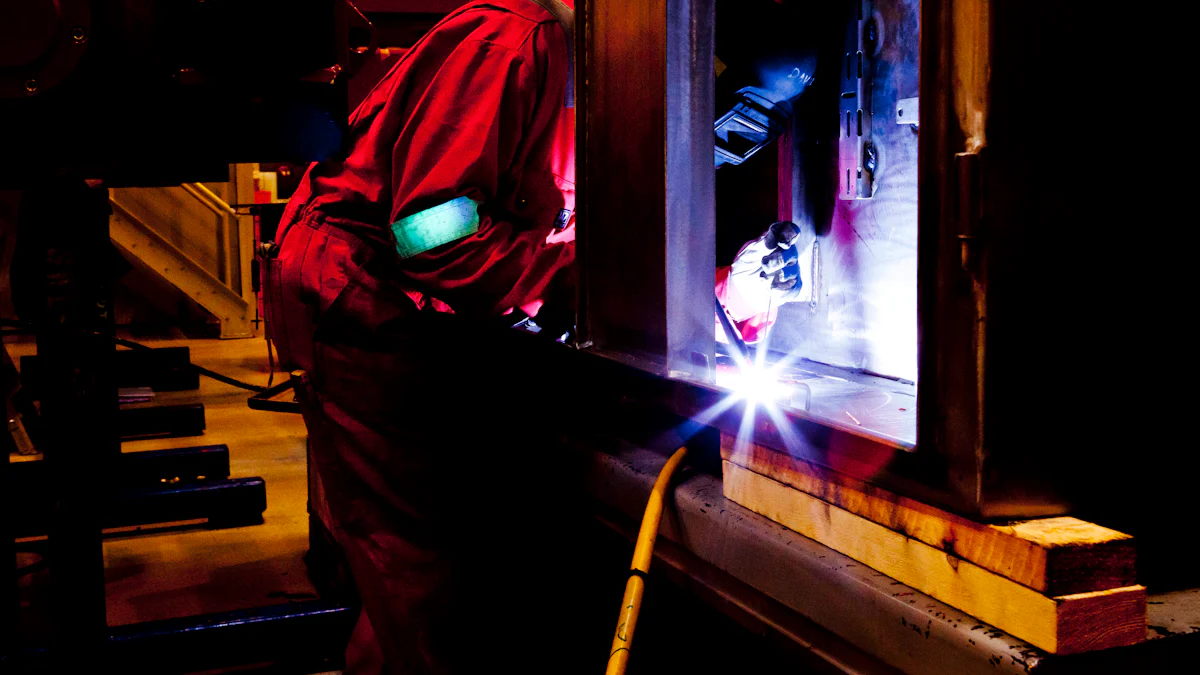
Stainless Steel Precision Casting transforms welding processes by delivering unmatched material consistency and precision. Its ability to reduce defects ensures smoother operations and fewer delays. Industries like automotive, aerospace, and agriculture rely on this method for its superior results. The process also supports material versatility, enabling manufacturers to meet specific needs like corrosion resistance or high-temperature durability. Additionally, Lost Wax Investment Casting and Alloy Steel Investment Casting techniques further enhance the capabilities of stainless steel precision casting, providing even more options for specialized applications.
What is Stainless Steel Precision Casting?

Definition and Overview
Stainless steel precision casting, also known as investment casting, is a manufacturing process that creates highly accurate and detailed metal components. This method involves several carefully executed steps to ensure precision. First, a wax model of the desired part is created. A mold is then formed around this model. Once the wax is removed, molten stainless steel is poured into the mold. After cooling, the mold is broken away, leaving behind a finished metal part.
This process stands out because it produces components with exceptional detail and smooth surfaces. Unlike traditional casting methods, precision casting minimizes material waste and reduces the need for extensive machining. Ningbo Pingheng Machinery Co., Ltd., established in 1999, specializes in this technique. They use medium-temperature wax and work with materials like stainless steel 304 and 316, as well as copper alloys. Their expertise supports industries such as automotive, engineering machinery, and shipbuilding.
Key Characteristics for Welding Applications
Stainless steel precision casting offers several features that make it ideal for welding. Its excellent corrosion resistance ensures durability, even in harsh environments. The high-temperature resistance of stainless steel allows it to perform well under extreme heat during welding. Additionally, its good formability and weldability make it easy to work with, reducing the risk of defects.
The process also enhances welding efficiency by using materials with lower carbon content. This minimizes the risk of carbide precipitation, which can weaken welds. For example, stainless steel grades like 304L are particularly suitable for welding due to their enhanced ductility and reliable corrosion resistance. These characteristics ensure strong, long-lasting welds, making stainless steel precision casting a preferred choice for industries requiring high-performance components.
Key Benefits of Stainless Steel Precision Casting for Welding Efficiency

Enhanced Material Uniformity
Material uniformity plays a vital role in welding efficiency. Stainless steel precision casting ensures consistent material properties across every component. This uniformity leads to several advantages:
- Consistent heating and welding result in stronger, more reliable welds.
- Uniform material thickness prevents uneven welds and ensures consistent energy absorption.
- Stable chemical composition and surface properties improve the overall welding process.
Ningbo Pingheng Machinery Co., Ltd., established in 1999, uses advanced investment casting techniques to achieve this level of uniformity. Their expertise in casting materials like stainless steel 304 and 316 ensures components meet rigorous industry standards.
Superior Surface Finish
Precision casting delivers a flawless surface finish, which directly impacts welding efficiency. Components produced through this method require minimal additional machining or finishing. This saves time and ensures consistency across production cycles. The smooth surface also enhances weld quality by reducing the risk of imperfections. Compared to other casting methods, stainless steel precision casting stands out for its ability to produce parts ready for immediate use.
Dimensional Accuracy
Dimensional accuracy is another standout feature of stainless steel precision casting. Manufacturers compare finished parts to design blueprints to ensure compliance with industry benchmarks like ISO or ASTM standards. Factors such as die temperature, injection pressure, and cooling time are carefully controlled to achieve precise dimensions. Advanced equipment, like robotic molding systems and 3D-printed patterns, further enhances accuracy. This precision reduces the need for adjustments during welding, streamlining the process.
Reduced Defects and Rework
Defects and rework can slow down production and increase costs. Stainless steel precision casting minimizes these issues by delivering components with consistent quality. The process reduces common casting defects, such as porosity or shrinkage, which can compromise weld integrity. By starting with high-quality parts, manufacturers can focus on efficient welding rather than fixing errors. Ningbo Pingheng Machinery Co., Ltd. ensures every component undergoes rigorous inspection, guaranteeing reliability and performance.
Real-World Applications of Stainless Steel Precision Casting

Automotive Manufacturing
Stainless steel precision casting plays a vital role in the automotive industry. It helps create lightweight components with thinner walls, improving fuel efficiency and reducing emissions. This process also ensures high-performance parts that enhance vehicle reliability and efficiency. Common automotive components made using this method include:
- Lightweight engine parts with complex designs.
- Transmission systems requiring minimal machining.
- Suspension elements that combine strength and reduced weight.
| Component Type | Description |
|---|---|
| Engine Parts | Complex components produced with high accuracy. |
| Transmission Systems | Efficient production with reduced machining needs. |
| Suspension Elements | Lightweight and high-performance parts. |
Ningbo Pingheng Machinery Co., Ltd., established in 1999, specializes in precision casting for automotive applications. Their expertise in materials like stainless steel 304 and 316 ensures compliance with industry standards, delivering durable and efficient components.
Food Machinery and Valve Production
The food processing industry demands components that meet strict hygiene and durability standards. Stainless steel precision casting excels in producing parts like:
- Metal grinder and coffee machine components.
- Valve and pump parts, including valve bodies, discs, bonnets, and glands.
- Stainless steel valves made with lost wax casting for precision and safety.
These components are essential for maintaining hygiene and resisting corrosion in challenging environments. Companies like Shandong Aleader Machinery Manufacturing Co. Ltd. use food-safe stainless steel to meet FDA standards. Their rigorous quality control ensures compliance with safety regulations, making stainless steel precision casting a trusted choice for food machinery and valve production.
Case Study: Pinheng’s Pressure Plate Assembly
Pinheng’s pressure plate assembly highlights the advantages of stainless steel precision casting. Crafted from stainless steel 304, this component ensures exceptional performance in welding applications. Its precise dimensions (188mm x 148mm x 64mm) and flatness of 0.1mm make it ideal for industries like automotive and food machinery. The assembly securely holds products during welding, preventing movement and ensuring consistent weld quality.
Pinheng’s investment casting process guarantees high material uniformity and durability. With an annual supply of 10,000 sets, the company has become a trusted supplier for industries requiring precision and reliability. Their commitment to quality and customer satisfaction sets them apart in the market.
Stainless steel precision casting revolutionizes welding efficiency with its precision, uniformity, and defect reduction. It offers long-term savings by cutting labor costs, improving part strength, and reducing weight. Pinheng, established in 1999, excels in delivering tailored solutions for industries like electric power and automotive, ensuring high-quality results through its investment casting expertise.
FAQ
What industries benefit the most from stainless steel precision casting?
Industries like automotive, electric power, and shipbuilding gain the most. Ningbo Pingheng Machinery Co., Ltd. provides tailored solutions for these sectors using precision casting techniques.
Why is stainless steel 304 commonly used in precision casting?
Stainless steel 304 offers excellent corrosion resistance, durability, and weldability. Ningbo Pingheng Machinery Co., Ltd. uses it to meet strict industry standards for high-performance components.
How does precision casting improve welding efficiency?
Precision casting ensures uniform material properties, dimensional accuracy, and fewer defects. This reduces rework and enhances welding quality, saving time and costs for manufacturers.
